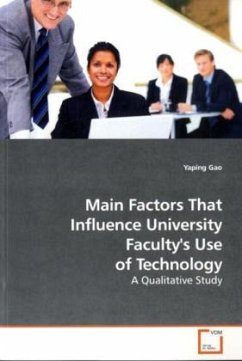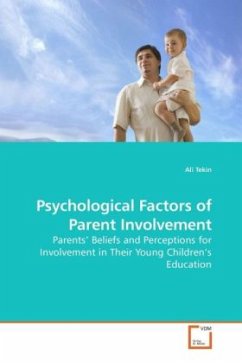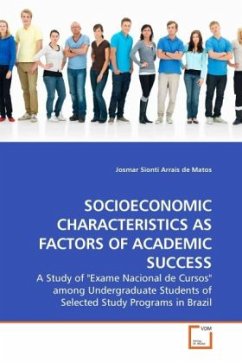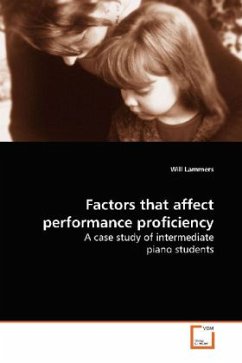
Do cultural forces shape self regulatory factors in learning?
A cross-cultural study of India and the United States
Versandkostenfrei!
Versandfertig in 6-10 Tagen
32,99 €
inkl. MwSt.

PAYBACK Punkte
16 °P sammeln!
Self-regulatory strategies and motivation in academic learning were investigated in different sociocultural milieu, comparing Mumbai, India and USA using pre-service college students. Of particular interest were the effects of motivation factors and learning strategies within each country and their interaction on student learning strategies. Using the MSLQ scale, the emergence of different constructs as predictors of academic achievement in different cultural environments indicated the need to interpret every construct in its cultural context. Regression analyses indicated intrinsic goal orien...
Self-regulatory strategies and motivation in academic learning were investigated in different sociocultural milieu, comparing Mumbai, India and USA using pre-service college students. Of particular interest were the effects of motivation factors and learning strategies within each country and their interaction on student learning strategies. Using the MSLQ scale, the emergence of different constructs as predictors of academic achievement in different cultural environments indicated the need to interpret every construct in its cultural context. Regression analyses indicated intrinsic goal orientation, self-efficacy and rehearsal were highest predictors of achievement in US students while self-efficacy and peer learning were highest in Indian students. Learning strategy variables were more important in Indian students while motivational variables were more important in US students. A universal prescription for learning in all cultures is not the panacea. Cultural forces that shape the lives of students in different countries impact pedagogical belief systems, reflected in the learning strategies, that requires culture sensitive pedagogy.












